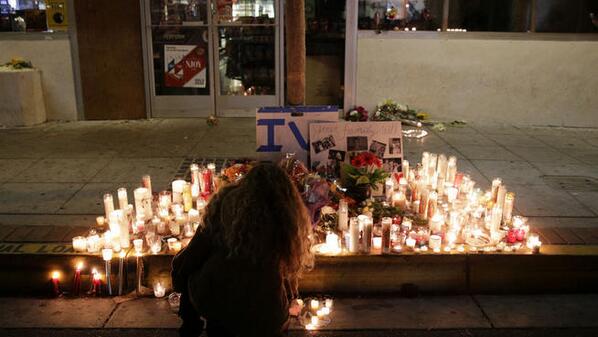Mental Illness, Guns, And Misogyny: A Look At What Guided Elliot Rodger

It’s the same discussion that seems to be renewed after every school shooting: mental illness and gun control. While the Isla Vista killing spree that left 7 dead and 13 woundedhas sparked new conversations about misogyny, most mainstream media outlets have primarily focused on mental health and gun reforms.
Elliot Rodger, the perpetrator who killed six University of California, Santa Barbara students in a stabbing-shooting before taking his own life, has been compared to Adam Lanza and the Columbine shooters.
Both of the UCSB and Columbine shooters displayed grandiosity, a key symptom of psychopathy. In his 141-page manifesto, Rodger wrote, “I am like a god, and my purpose is to exact ultimate Retribution on all of the impurities I see in the world.”
READ MORE: #YesAllWomen Moves The Conversation Beyond Elliot Rodger
“It’s not a far cry to say that they all show signs of psychopathy,” said Leslie Berntsen, a psychology graduate student at the University of Southern California (USC), of people's attempts to connect Rodger to previous killers.
According to Berntsen, who does research on the biological and social risk factors for aggression and antisocial behavior, however, it is important to recognize the difference between psychopathy and mental illness in order to prevent further stigmatization of the mentally ill.
“One thing we can do is try to call people out when they use ‘mental illness’ as an umbrella term, especially when they relate it to shooting sprees and violence,” said Berntsen. She went on to point out that people with mental illnesses are more likely to be the victims, rather than perpetrators of violence.
READ MORE: How White, Male Privilege Made A Mass Murderer Of Elliot Rodger
Chris Ferguson acknowledged the stigmatization of mentally illness in Time,yet still claimed that Rodger and previous perpatroators of mass killings are “with few exceptions…angry, resentful, mentally ill individuals.” Ferguson dismissed society’s role in Rodger’s misogyny, saying that there is “little common thread among mass-homicide perpetrators to target women.”
But Rodger was not the first shooter fueled by a hatred for women. Think back to 2012, when a shooter targeting a female administrator killed six women and one man at Oikos University. Or remember the 14 female students killed at Ecole Polytechnique"for being feminists." Rodger’s hatred clearly did not develop in a vacuum.
“For violence to occur, violence has to have some kind of target,” Berntsen said. “In Columbine and other shootings, their targets were all of humanity. Elliot Rodger made it very, very clear that women as a whole and the men who get them were the targets because of his history of rejection.”
READ MORE: Elliot Rodger Planned Murder Spree Since January
On another side of the mental health debate is the call for stricter gun control. Despite California’s strict gun laws—which are among the toughest in the country—Rodger was still able to legally obtain three semiautomatic handguns and over 400 rounds of ammunition.
Richard Martinez, whose son, Christopher, was murdered during Rodger’s rampage, spoke outagainst the use of assault rifles and semiautomatic weapons outside of war. Others have called for limiting gun access to those with mental illness.
Some critics argue that gun control would not have stopped Rodger, who stabbed three of his victims and also used his car to try to run people over.
One scholar even argued in Al Jazeerathat focusing our anger in an argument about gun control or mental health care is “a cop out.”
According to Dexter Thomas, understanding the intersections of race and gender in Rodger’s thought process and how society raises scared, angry young men is necessary to face the deeper problems of the Rodger’s actions. Yet Berntsen continues to emphasize the importance of examining mental illness, gun control and misogyny together, instead of only focusing on one or the others.



